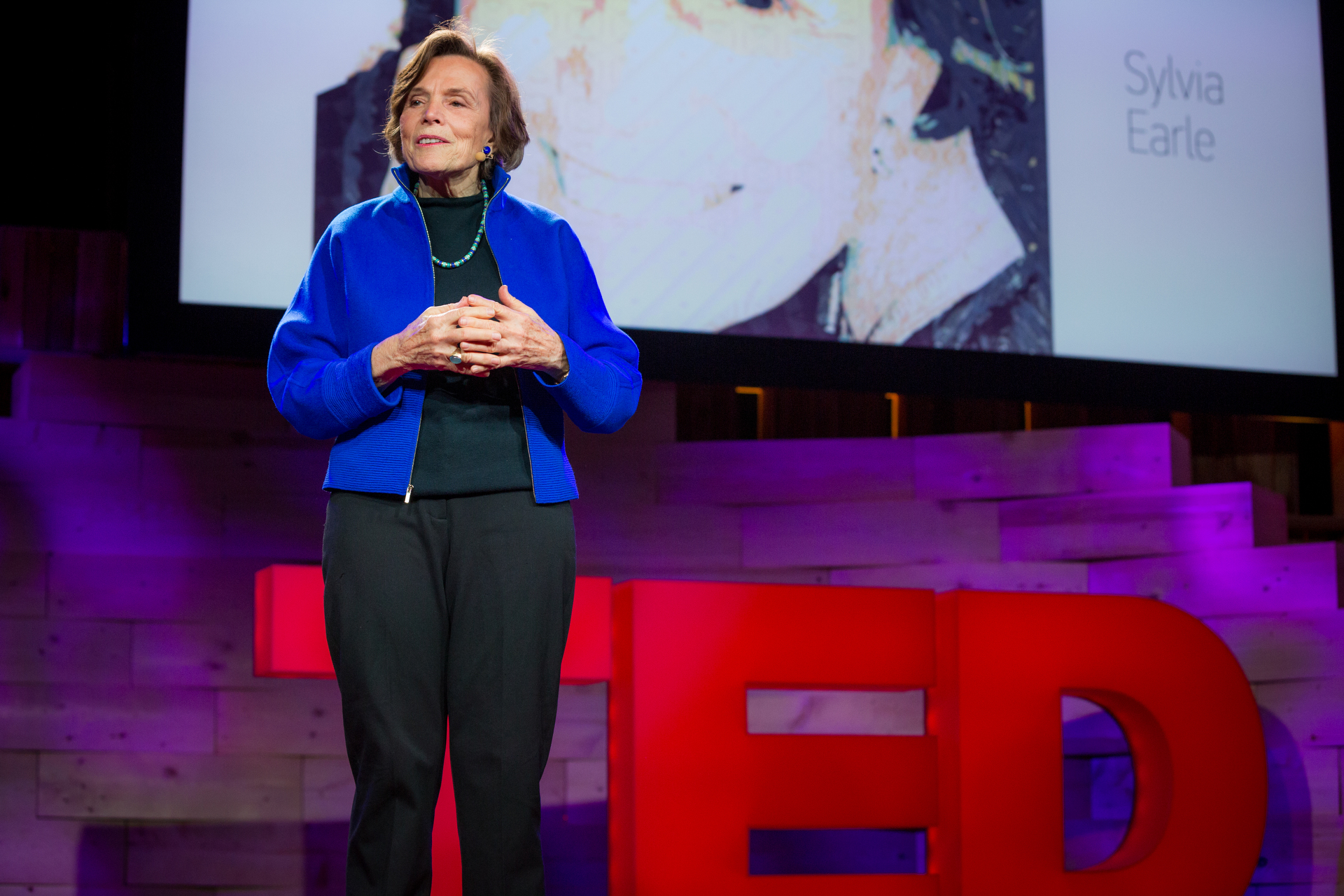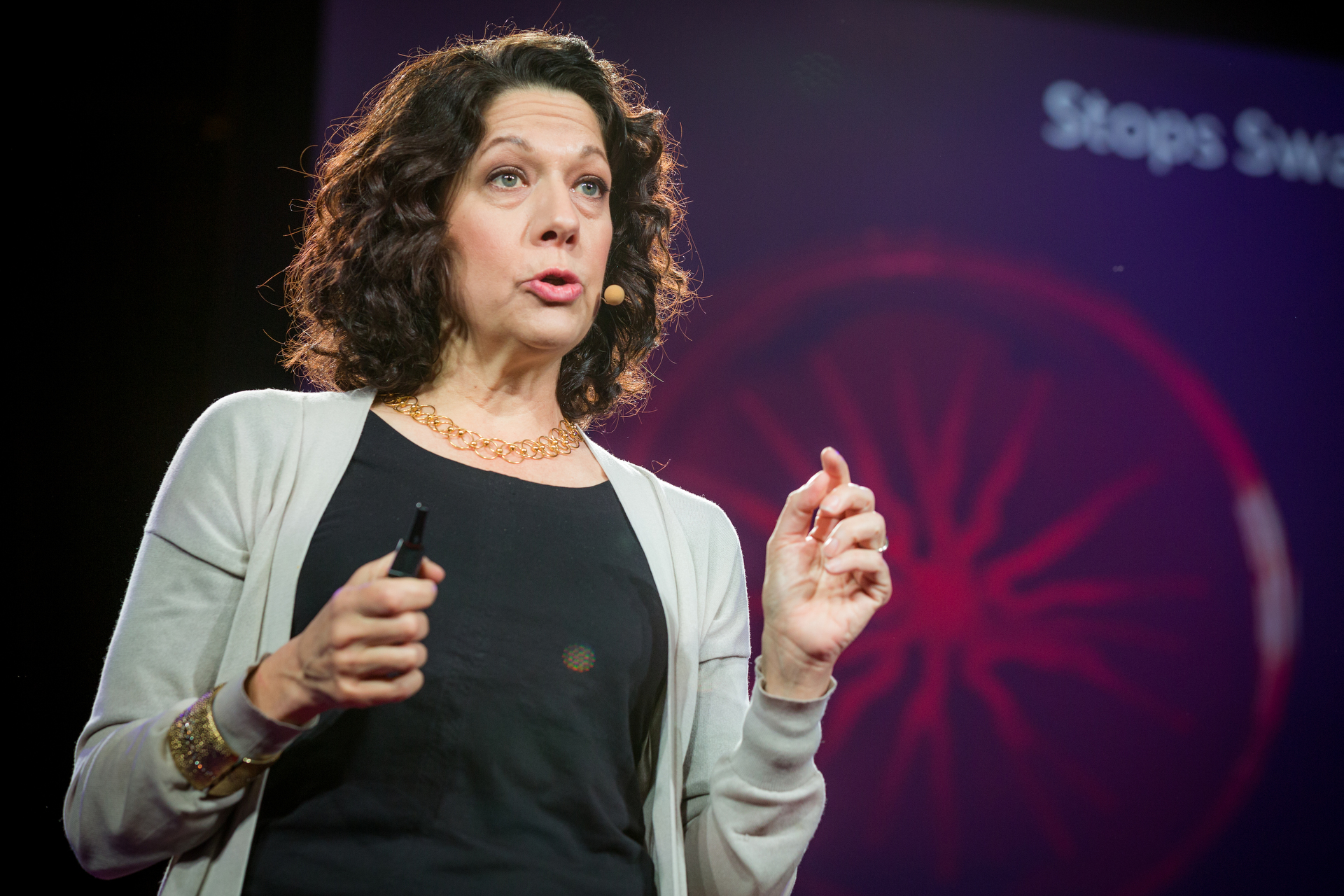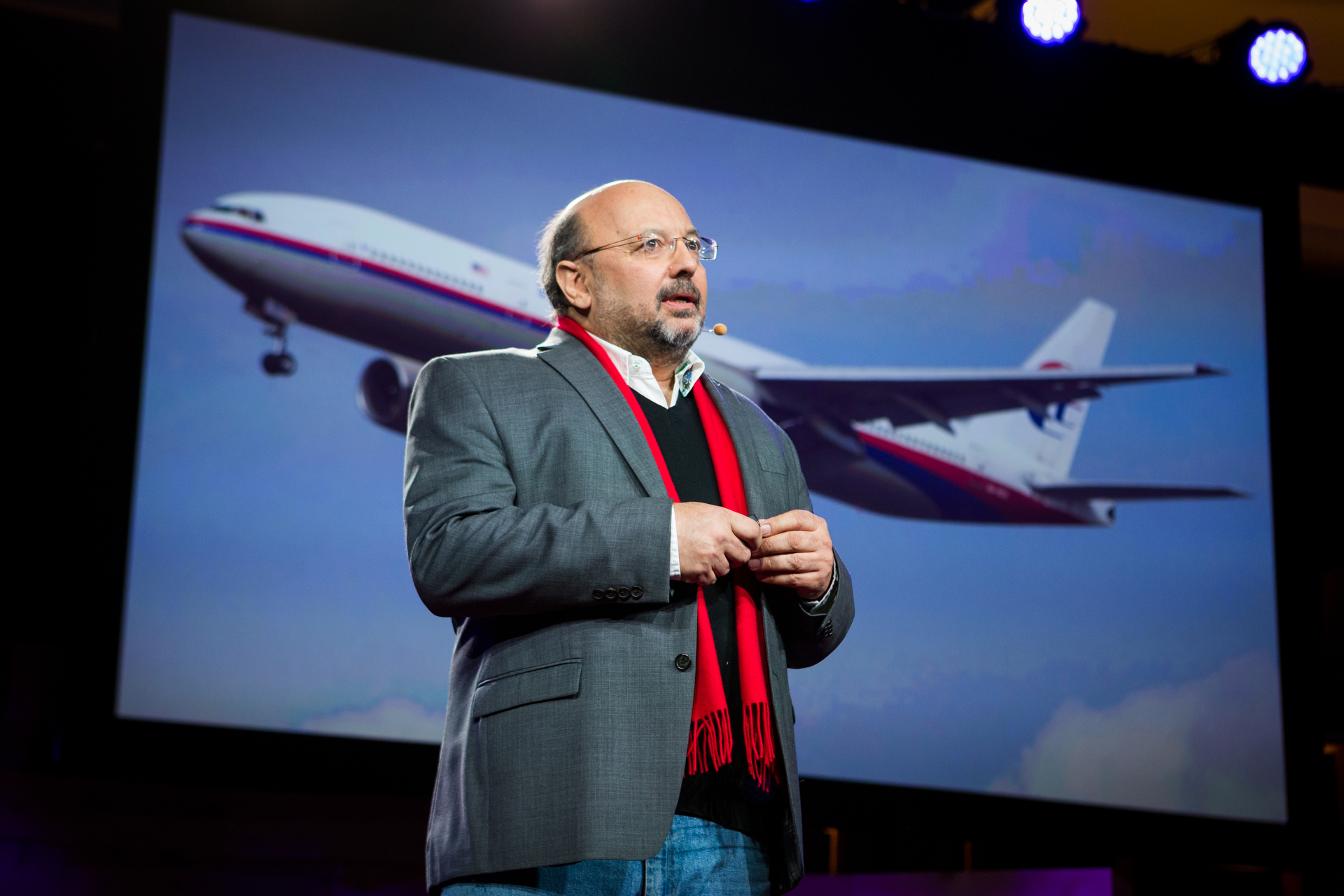By Liz Jacobs and Kate Torgovnick
Are we on the brink of a resource crisis? All signs point to yes. As the human population grows, the planet is buckling under the pressure of our needs. In this inaugural All-Stars session, 11 classic TED speakers return to the stage to share their deep concern for preserving the magic of Planet Earth … and to share what’s happened since they gave their talk. Here’s what they said:
Welcome to Canada! National Geographic explorer-in-residence Wade Davis kicks off the program with a meditation on Canada’s muted patriotism. Davis, whose three previous talks discuss the challenges facing indigenous cultures, explored the essence of Canada’s national soul, where landscape and culture intersect. “We live in an impossible country,” he says. “We live on the edge of the wild.” Canadians encountered the First Nations of the land and didn’t make war with them—they married them. “Americans look west for heroes, Canadians look north.”
With her wish for the 2009 TED Prize, oceanographer Sylvia Earle asked us all the embrace “the blue heart of the planet.” With the prize, she led a voyage to the Galápagos to raise awareness for ocean conservation. That voyage was recorded for a documentary, Mission Blue, which premiered in January. Earle comes to the All-Stars stage to tell us about the film, and to share some good news. “When I made the wish, only 1% of the ocean had some kind of protection,” she says. “Today, I’m happy to say five years later we’ve doubled that amount.” She also excitedly tells us that the president of Palau has declared the nation’s entire economic zone off-limits to commercial fishing. But so much work is left, she says. “We have to change the way we think about the ocean,” says Earle. “The most important thing we extract from the ocean is ourselves.”
Next up is Stewart Brand, a man who “needs almost no introduction.” His five previous talks offer bold — and sometimes controversial — ideas about nuclear energy, the Long Now, squatter cities, environmental heresies, and the subject of this talk, de-extinction. In this talk, he updates us on the efforts to reverse the extinction vortex and revive three extinct species: the wooly mammoth, the passenger pigeon and the black-footed ferret. Here’s how it works: teams of scientists insert DNA into genetically similar modern species, like Asian elephants in the case of the wooly mammoth, with a genome editing tool called CRISPR. Can these models be applied to other endangered species and revolutionize the conservation movement?
Science historian George Dyson, who gave the talk “The birth of the computer,” is kayak-obsessed. And on arriving in Vancouver, “I thought I’d died and gone to heaven—there were kayaks on the two-dollar bill!” He’d come to the city to study the design and history of these vessels, which were first made of animal skin, then wood, now modern materials. Jumping off Stewart Brand’s talk, Dyson tells the story of how he tried to de-extinct a high-speed kayak, the bidarka. “I wanted to bring back the bidarka as a way of life,” says Dyson. But it’s not just about a single boat. He imagines: what if these incredible vehicles repopulated the ocean?
Bonnie Bassler is back to share updates on her 2009 talk about bacterial communication. Her research has lead to exciting progress in developing tools that interfere in the conversation between bacteria. As bacteria sense the status of nearby cells in a process called quorum sensing, they make group decisions that can be harmful to our bodies. Bassler’s pathogen inhibitors change the structure of the molecule that signals the start of quorum sensing — instead, her inhibitors stop communication and turn quorum sensing off. Could this pathogen inhibitor pave the way for new, more powerful medicine?
“Solar power is scaling up faster than cell phones,” says energy guru Amory Lovins, who laid out a 40-year plan for energy in 2012. In each of the past three years, he says, we have added 80 billion watts of solar energy and, today, the United States has more solar jobs than those in coal or steel. Lovins is here to tackle a myth about solar power that he believes is holding it back from even faster growth—the idea that solar and wind power, are too unreliable to depend on. He points out that the entire reason we have the electric grid is because no plant operates around the clock and there always needs to be balancing working plants and failing ones. Lovins shows us how solar power could be choreographed for optimal use. “The market isn’t waiting, only the myth holds us back,” he says.
Shifting his focus to another natural resource, 2005 TED Prize winner and photographer Edward Burtynsky shares five minutes of his newest project, a visual essay on water. In his past talks, Burtynsky’s photography focused on the interaction of humans and nature through manufactured landscapes and the juxtaposition of oil and nature. Now, he’s turned his attention to fresh water. In his feature-length film Watermark, he explores 10 countries and 20 stories about the role of water in our lives. From the Ogallala Aquifer in the Midwestern US to Mah Kumbh Mela in Allahbad, India, to the Xiaolangdi Dam Silt Release in China, his gorgeous footage underlines the interaction between the sky, the land, and ourselves.
Oceanographer David Gallo has been a part of the search for Malaysian Air 370. “Why is there so much confusion about what happened to this plane?” he asks. “It’s not just about the plane, but about the 239 souls aboard that plane. For their families, their friends, for the flying public, we need to find that plane.” Gallo points out another mystery—our oceans. We’ve only explored about 6% to 7% of the oceans, and yet in that small percentage are some of the most amazing landscapes and organisms. Looking at an image of the globe, Gallo says, “On this scale, you can hardly see any trace of humanity. Like microbes, we’ve managed to make this planet sick. There are 7 billion people on this planet, and many more to come, and I’m afraid we’re going to screw it up.”
Africa rising: is it reality or hype? In 2007, former Nigerian Finance Minister Ngozi Okonjo-Iweala gave a pair of talks on the promises and challenges of Africa’s future as a growing economic power. Now she’s back to examine economic trends of the past decade. Yes, there’s been incredible progress — more democratic countries, more foreign investment, less debt and lower inflation rates. And yes, the continent still faces challenges: inadequate infrastructure, roads, connectivity, energy and rising inequality. But, says Okonjo-Iweala, let’s look at these challenges as opportunities for investment and job creation. “Join us,” she says. “Work with us to take advantage of all the opportunities Africa presents.”
“Even nature’s most disgusting creatures have important secrets,” says biologist Robert Full, who gave the talk “The sticky wonder of gecko feet” at TED2005. Full is here to share with us the difference between natural and man-made systems—mainly, that natural ones are far more robust. As an example, he brings up the cockroach, which has “wonderfully-tuned legs” that allow it to clamber over uneven surfaces, even when injured or missing legs. It’s body shape allows it to roll to fit through tight spaces, it’s able to invert over ledges to avoid detection and, of course, to fly. It’s rugged exoskeleton allows it to run into walls—and then straight up them. Full and his team have looked to these creatures for inspiration for their new robots, DASH. “They are highly compliant and remarkably robust, designed to have behaviors of the cockroach,” says Full, before releasing them into the audience.
Closing out the session is musician Imogen Heap, a longtime TEDster who wrote a song about a special night at TED Global 2009 in Oxford. “Propeller Seeds” tells the story of someone she met after after performing “Wait it Out,” when she was just hungry and focused on finding food. But when she tuned in and he mentioned that he grew up in Paris, she felt herself “growing roots through my toes and leaves from my fingertips,” and was all of a sudden contemplating wedding rings and children. “Where does this story go?” Have a listen, and see what you can figure out.



Comments (3)
Pingback: Shape-Shifters, Vampires, Chimeras Under The Sea (video)